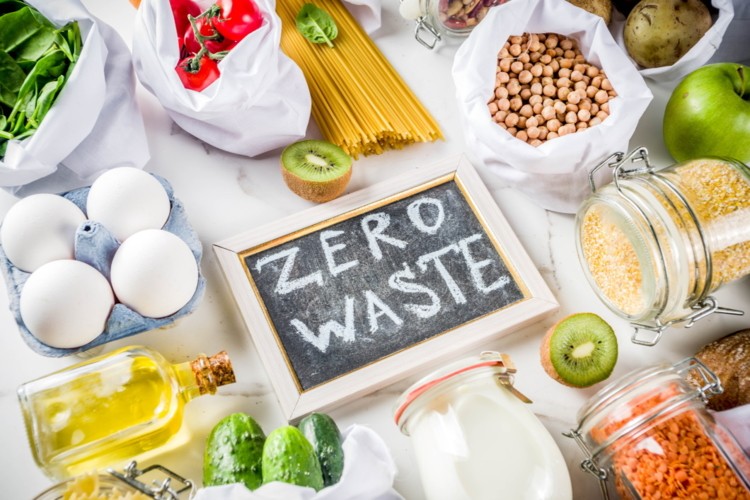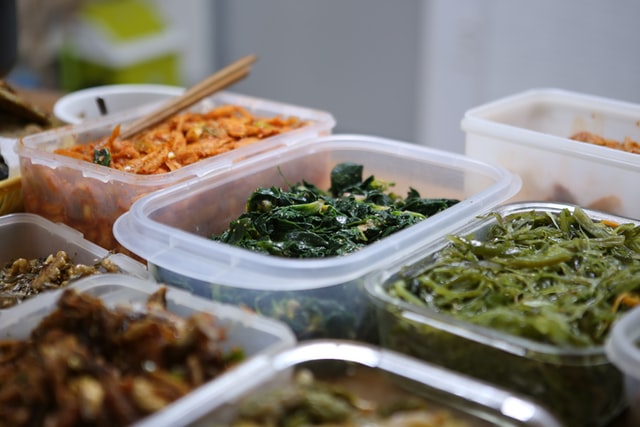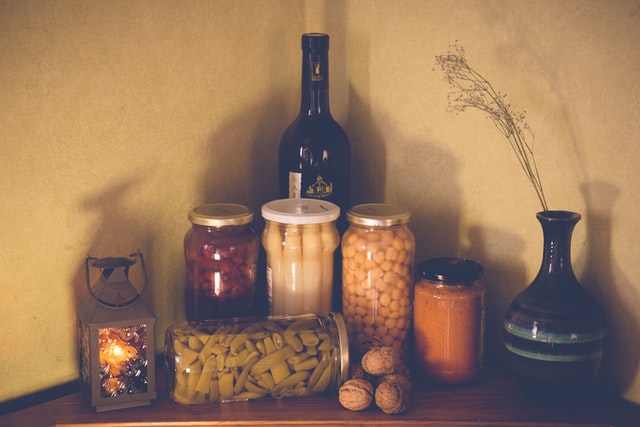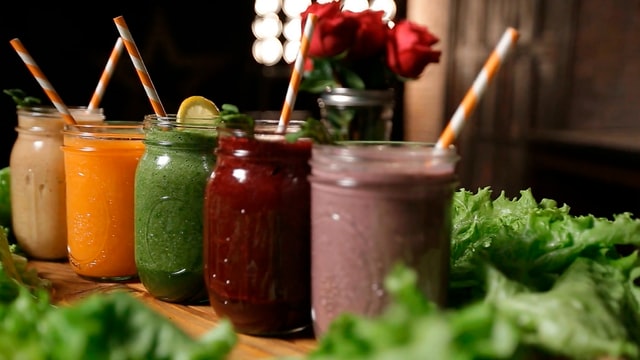| Getting your Trinity Audio player ready... |
You’ve read the articles and seen the TikToks. Food waste is a huge global issue, but the effects hit closest to home when you realize how much money you’re literally tossing in the trash. That excess, unused food isn’t just a waste of money—it’s the root cause of clutter and disorganization in your kitchen. It’s impossible to have an efficient, stress-free space when you’re constantly wading through items you’ll never use.
How Much Food is Wasted in the US?
Let’s talk numbers—and trust me, these will sting. When we look at the big picture, the United States wastes nearly 40 million tonnes (or 80 billion pounds!) of food every single year. That’s nearly one-third of the entire US food supply ending up in the trash.
To put that in perspective for your own home: that’s like every single person in America throwing over 650 apples directly into a landfill. Imagine that pile of money and perfectly good food gone!
Here’s what that looks like locally: Food is the single largest component taking up space in our municipal landfills—making up 22% of all trash.
But here’s the good news: the solution starts right where the problem is concentrated—in your kitchen. Fortunately, reducing food waste at home is much simpler than you think. Let’s take a closer look at how we can stop this cycle.
Make a Meal Plan
Keeping your kitchen organized and your food supplies in check is easier with a weekly food plan. It’s also a terrific strategy to get the most out of your shopping trips by making sure you get the items you know you’ll use. Don’t worry; you can be flexible and vary things up a little, but if you have a decent sense of what you’re eating most days, you’ll be able to cut down on food waste quickly.
Meal planning – which I covered in more detail here – also helps ensure that your meal schedules are organized and that however busy your day was, everyone eats well at the end of it.
Stop Buying in Bulk or Do It the Right Way
To save time in today’s hectic world, most of us choose to do a large weekly or even monthly shop. This means you’ll have to buy a lot of your groceries in bulk. However, due to improper storage or unforeseen circumstances, much of that food may end up in the garbage can.
So, if at all feasible, go to the market more regularly and buy smaller quantities of fruits, vegetables, meat, and dairy items. Things are less likely to perish or be forgotten this way.
Get into Pickling and Preserving
There’s no need to fret if you accidentally buy too many fruits or vegetables. Food preservation has been practiced by humans for millennia, and there’s no reason why it shouldn’t continue in this day and age.
Pickling, preserving, fermenting, or creating chutneys and jams with your extra fruit and vegetables is a great way to extend their shelf life and produce delectable delights. Meat that has been left over can be cured, smoked, or dried to keep it fresh for months. These are not difficult culinary skills to learn, and lots of people who get into pickling and preserving find that they really enjoy it, both the process of creating the foods and eating them!
Make the Most of Your Leftovers
The odds and ends thrown out are one of the most common sources of food waste at home. All of the peels, stems, tips, and tails seem to end up in the garbage can. However, they can still be useful and are high in minerals, fiber, vitamins, and other elements. Broccoli and mushroom stems, for example, can be added to stocks or soups, while berry tops, fruit and vegetable peels, and wilted herbs taste just fine when combined into a smoothie.
Expiration Dates Should Be Taken with a Pinch of Salt
Misreading expiration dates on food packaging is another big source of food waste at home. The majority of products have a sell-by date, which is used to help businesses and markets keep track of their inventory.
Many consumers, however, misinterpret this date as the expiration date and toss such items out without even checking to see if they’re still good. Even the expiration date should be treated with caution. If a ‘expired’ product still looks, smells, and feels good to you, there’s usually no reason to discard it.
Use Your Freezer to Its Full Potential
The home freezer is one of the greatest achievements of the last century in terms of food preservation. It enables you to extend the shelf life of a wide range of goods, from raw meat to cooked meals. A freezer is a fantastic place to keep batches of stocks, soups, and even lemon and lime juice so you don’t have to waste anything out.
Taking the time to organize your freezer will help. If you need help with that decluttering project, I also covered that too, in a post you can check out right here.
Make Use of Better Storage Solutions
Fruit, vegetables, and meat will go bad more quickly due to poor storage. Meat and dairy products should almost always be kept in the refrigerator, although onions, tomatoes, garlic, and potatoes should be kept at room temperature.
Bananas, apples, and tomatoes should be kept separate from other fruits and vegetables to avoid overripening. Use stock rotation strategies with packaged goods to keep the items with the shortest expiration dates at the front and easiest to reach.
Get into the habit of maintaining an organized fridge. Often the reason fruits and veggies don’t get used up and go bad is that your family simply didn’t know they were there – and maybe even you forgot – because your fridge space is too cluttered.
Set Yourself a Compost Challenge
So much of the food we throw away might be used to make compost. Vegetable peels, tea leaves, coffee grinds, and eggshells may all gently decompose into an excellent natural fertilizer. A compost heap is a no-brainer if you have a garden.
Even if you don’t have access to an outdoor space, it’s worthwhile to maintain a compost container on hand. Many communities have composting systems in place and will gladly accept your waste.
Need help getting your fridge, freezer or kitchen better organized to help prevent food waste and create a more efficient space? Just Organized by Taya can do just that for you. In fact, our experienced team can help you with almost any home, office or life organization project, as well as help you decorate your Houston home or office. Book an appointment today and let’s discuss exactly how we can help you.
- The Post-Christmas Reset: What to Do (and What to Skip) This Weekend - December 26, 2025
- The Week-Before-Christmas Survival Guide: Last-Minute Gift Organization Tips - December 18, 2025
- 7 Things in Your Kitchen Right Now That Need to Go - December 16, 2025







